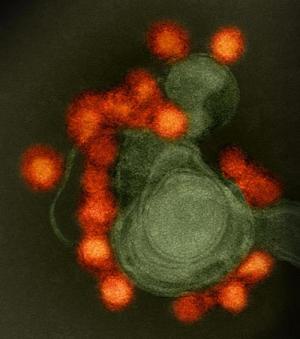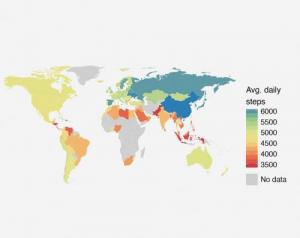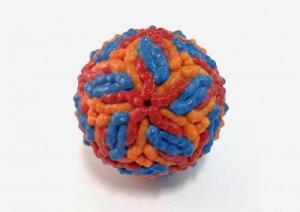Health
Malaria drug protects fetal mice from Zika virus, NIH-funded study finds

Transmission electron microscope image of negative-stained, Fortaleza-strain Zika virus (red), isolated from a microcephaly case in Brazil.
- Read more
- 448 reads
NIH-funded team uses smartphone data in global study of physical activity

The map show the most and least active countries
- Read more
- 465 reads
Australia: Fulfill Pledges on Women’s Health
The Australian government should meet its financial commitments for sexual and reproductive health at the Family Planning 2020 Summit in London on July 11, 2017, Human Rights Watch said in a letter to Australian Foreign Minister Julie Bishop. At the summit, more than 36 governments will review progress on the goal to enable 120 million more women worldwide to access a modern form of contraception by 2020.
https://www.hrw.org/news/2017/07/09/australia-fulfill-pledges-womens-health
- Read more
- 502 reads
Antibiotic-resistant gonorrhoea on the rise, new drugs needed
Data from 77 countries show that antibiotic resistance is making gonorrhoea – a common sexually-transmitted infection – much harder, and sometimes impossible, to treat.
- Read more
- 453 reads
New CDC Report shows deaths from cancer higher in rural America

- Read more
- 359 reads
Opioid prescribing is still high and varies widely throughout the U.S.

- Read more
- 381 reads
NIH and collaborators identify the genomic cause for Carey-Fineman-Ziter syndrome

The graphic depicts normal myoblasts (early muscle cells with a single nucleus) fusing together to form muscle cells with more than one nucleus. The cascade is disrupted in Carey-Fineman-Ziter syndrome, because of a defect in the membrane protein, myomaker, which is required for cell-cell fusion.
- Read more
- 402 reads
UN agency condemns attack on staff in Central African Republic town

Children in Kaga Bandoro, Central African Republic. The town has been wrecked by persistent violence, leaving many in need of humanitarian assistance.
- Read more
- 383 reads
Blood of SIDS infants contains high levels of serotonin
Blood samples from infants who died of Sudden Infant Death Syndrome (SIDS) had high levels of serotonin, a chemical that carries signals along and between nerves, according to a study funded in part by the National Institutes of Health. The finding raises the possibility that a test could be developed to distinguish SIDS cases from other causes of sleep-related, unexpected infant death.
- Read more
- 361 reads
Human Rights
Fostering a More Humane World: The 28th Eurasian Economic Summi

Conscience, Hope, and Action: Keys to Global Peace and Sustainability

Ringing FOWPAL’s Peace Bell for the World:Nobel Peace Prize Laureates’ Visions and Actions

Protecting the World’s Cultural Diversity for a Sustainable Future

Puppet Show I International Friendship Day 2020


